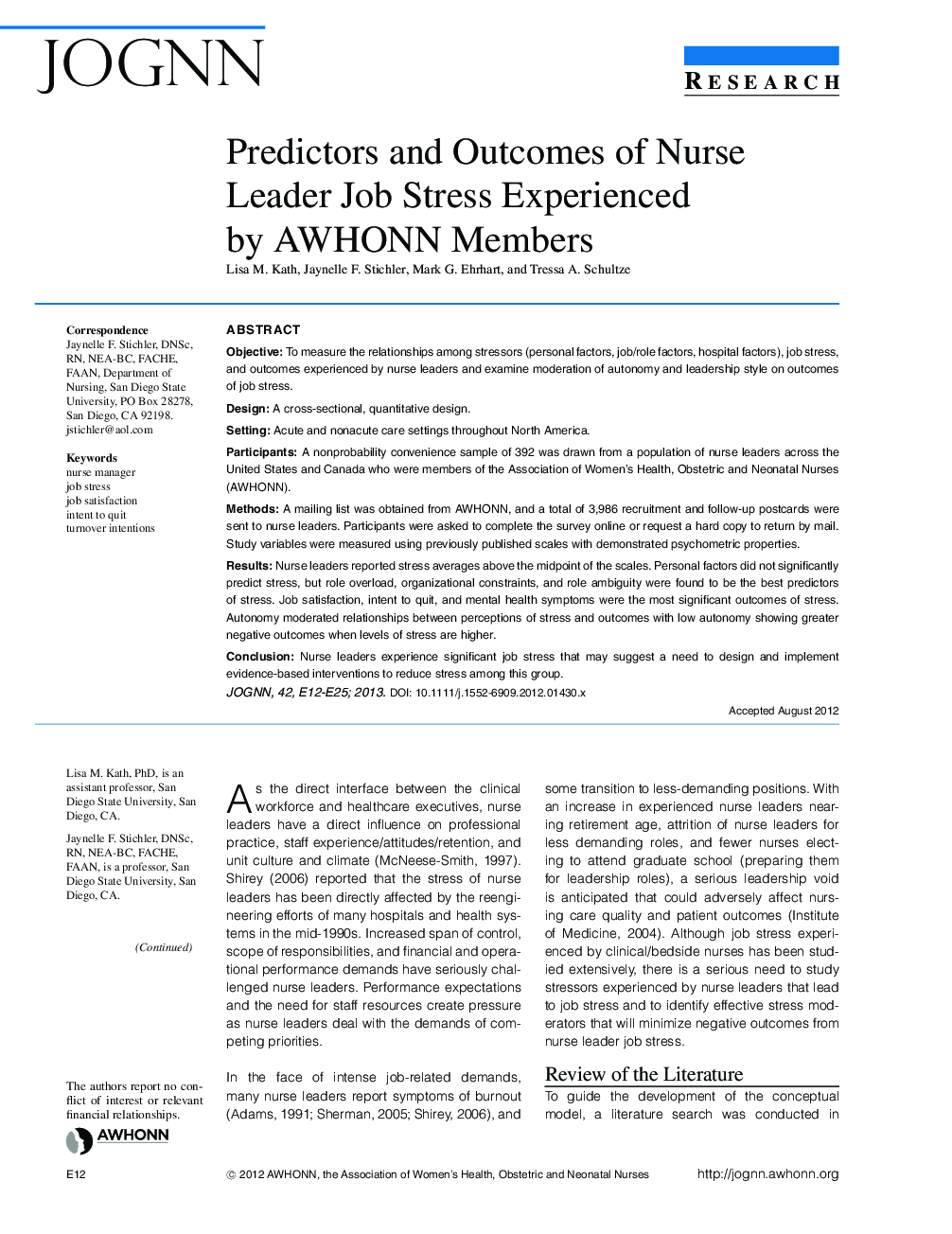| Article ID | Journal | Published Year | Pages | File Type |
|---|---|---|---|---|
| 2632824 | Journal of Obstetric, Gynecologic & Neonatal Nursing | 2013 | 14 Pages |
ABSTRACTObjectiveTo measure the relationships among stressors (personal factors, job/role factors, hospital factors), job stress, and outcomes experienced by nurse leaders and examine moderation of autonomy and leadership style on outcomes of job stress.DesignA cross‐sectional, quantitative design.SettingAcute and nonacute care settings throughout North America.ParticipantsA nonprobability convenience sample of 392 was drawn from a population of nurse leaders across the United States and Canada who were members of the Association of Women's Health, Obstetric and Neonatal Nurses (AWHONN).MethodsA mailing list was obtained from AWHONN, and a total of 3,986 recruitment and follow‐up postcards were sent to nurse leaders. Participants were asked to complete the survey online or request a hard copy to return by mail. Study variables were measured using previously published scales with demonstrated psychometric properties.ResultsNurse leaders reported stress averages above the midpoint of the scales. Personal factors did not significantly predict stress, but role overload, organizational constraints, and role ambiguity were found to be the best predictors of stress. Job satisfaction, intent to quit, and mental health symptoms were the most significant outcomes of stress. Autonomy moderated relationships between perceptions of stress and outcomes with low autonomy showing greater negative outcomes when levels of stress are higher.ConclusionNurse leaders experience significant job stress that may suggest a need to design and implement evidence‐based interventions to reduce stress among this group.
